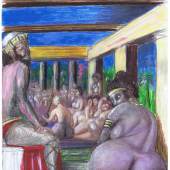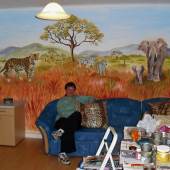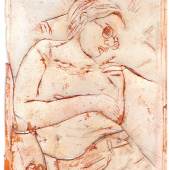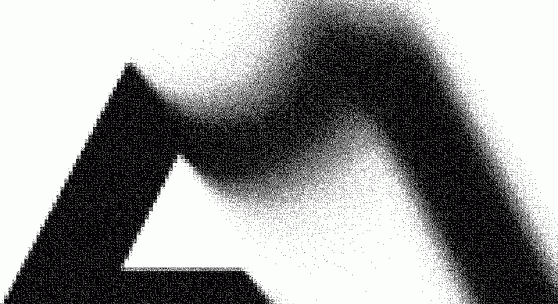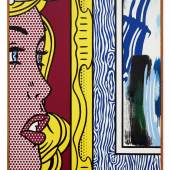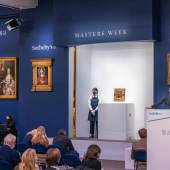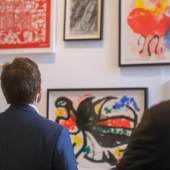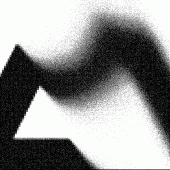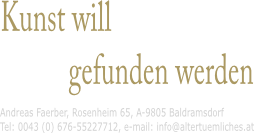Austrian Contribution, London Design Biennale 2018
-
Ausstellung04.09.2018 - 23.09.2018
FOR THE LONDON DESIGN BIENNALE 2018 – TAKING PLACE FROM 1 4th TO 23rd OF SEPTEMBER AT SOMERSET HOUSE LONDON – STUDENTS FROM DESIGN INVESTIGATIONS, A FIVE YEAR DIPLOMA PROGRAM AT THE UNIVERSITY OF APPLIED ARTS VIENNA, LED BY PROFESSOR ANAB JAIN, PRESENT A SPECULATIVE INSTALLATION CURATED BY THOMAS GEISLER.
The second London Design Biennale will see the presentations of more than thirty nations from six continents in Somerset House in London. The participating countries are focusing on key themes encapsulated in the motto ‘Emotional States’, the main challenges facing our society at present: sustainability, migration, environmental pollution, general availability of water and social equality.
In the Austrian contribution the students investigate the opportunities, as well as the tensions and unintended consequences of a complex and contradictory world. They create tools, tactics, strategies, stories, actions, instruments and systems that aspire to be pioneering, transformative and stimulating, but also inclusive and full of humility.
Transporting visitors to an Austria contending with the stark realities of climate change, they demonstrate how those who live in this world face down new challenges with tradition and technology, using craft and cunning to thrive in an altered landscape. Visitors will experience the emotional tensions of this altered Austria through first-hand experiments, legal hacks, protest rituals, performances and atmospheric soundscape. The contribution is a cooperative venture between the Werkraum Bregenzerwald and the Vienna University of Applied Arts, commissioned by the Austrian Federal Chancellery / Section II – Art and Culture.
AFTER ABUNDANCE —a speculative installation of Studio Design Investigations led by Anab Jain, curated by Thomas Geisler
The Austrian installation, AFTER ABUNDANCE, transports visitors to an Alpine landscape reshaped by climate change, where human ingenuity and interspecies solidarity offers the key to survival. Studio Design Investigations shows how local communities confront new challenges with tradition and technology, using craft and cunning to thrive in an altered terrain. Through encounters with experiments, legal hacks, protest, ritual and performance, we invite you to immerse yourself in the lives of people from this possible future.
CORN CARTEL —Sarah Franzl, Bernhard Poppe, Julia Brandl, Isabel Prade
Currently, there is no need for genetically engineered corn in Austria. However, by 2050, as risks of flooding and drought increase and food supply becomes precarious, such changes might force us to revaluate our attitude toward genome editing. As technological advances make such techniques more accessible to laypeople, greater need for food products will give rise to thriving black markets, as individuals circumvent ethical and legislative barriers to meet this demand. This exhibition concept allows visitors a glimpse into the basement laboratory of an illegal CRISPR technician. The lab shows the tools required to work with CRISPR without pristine equipment and regulatory oversight, while a poster informs visitors about the difference between government and illegally edited corn. Taken together, they show how people are starting to resist restrictive legislation, while documentation produced by the lay scientist reveal her efforts to deal with the uncertainties of the time.
ILLEGAL RAIN —Florian Semlitsch, Lucy Li, Agnieszka Zagraba
A severe drought has hit post-abundance Austria – the citizens of the Alpine country are suffering the consequences of climate change. Defending its monopoly on water, the Austrian government uses cloud seeding technology to trigger and regulate rainfall. Deep in the country’s rural areas, however, a community of cunning farmers has developed strategies to produce their own weather. You find yourself in a traditional Austrian farmhouse Stube – lights dimmed, the sound of rain falling on the roof. The picture feels familiar, but some odd details arouse your curiosity: the disassembled drone on the kitchen table, the old family pictures on the walls – you start investigating the room and the life of whoever lives here. A story, told via headphones located around the corner bench, gives more detailed information in an emotional narrative.
GLACIER —Felix Lenz, Sophie Falkeis, Carmen Farr, Ula Reutina
In a post-abundant Austria, natural entities have gained the status of a legal person. According to the „Declaration of Rights for Natural Entities“, issued by a future Austrian government, certain entities are entitled to certain rights, including the right to bring proceedings in front of court of law. The case exhibited tells the story of a melting glacier, which – represented by its guardian – claims restitution through civil forces in the form of a physical rebuilding. This Sisyphean task is expected to last for multiple generations, as an attempt to re-establish the injured entity’s dignity. Visitors to the installation will experience an atmospheric soundscape featuring cracking sounds of a glacier occasionally disrupted by the noise of a siren. Reacting to this alarm, life-sized figures fulfilling their compensatory civil service – spraying water to replenish the melting glacier – are projected onto the translucent face of a monumental ice-like structure.
-
15.11.2021 - 19.11.2021Sotheby’s Lifts the Curtain onOne of the Most Important Sales Series Ever Staged $1 BILLION...
-
28.01.2022Sotheby’s New York Master Paintings and Sculpture Part ITotals $91 MillionSecond Highest...
-
18.11.2021Sotheby’s To Announce Live Bidding Increments in Ether (ETH) Cryptocurrency For Banksy...
-
Shapero Modern repräsentiert eine Vielzahl von talentierten Künstlern aus verschiedenen Teilen...
-
* 1934 in Wien (Österreich), † 2014 in Wien (Österreich) Architekt, Theoretiker,...
-
04.09.2018 - 23.09.2018
Austrian Contribution, London Design Biennale 2018, Sept 4th—23rd East Wing, Room Nr. 18 at Somerset House London

